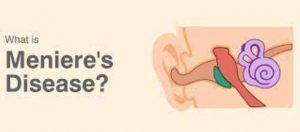 Meniere’s disease is the most common cause of vertigo. This condition has been around a long time and much research has been done. It affects the labyrinth of the ears. Though there is no cure, numerous things can be done to help manage Meniere’s disease. These include:
Meniere’s disease is the most common cause of vertigo. This condition has been around a long time and much research has been done. It affects the labyrinth of the ears. Though there is no cure, numerous things can be done to help manage Meniere’s disease. These include:
Medications
Surgery
Physical therapy
There is no known cause however, there are lots of theories around about its origins. Some believe that genetic factors play a part while others believe that environmental problems pose the biggest risk.
Those with Meniere’s disease often have vertigo, which can be described as extreme dizziness that makes it seem as if your surroundings are moving. The most dangerous part of this condition is that you can lose your balance, fall and hurt yourself. There are other symptoms as well:
Upset stomach
Vomiting
Nausea
Pain in or behind the eye
Buzzing in the ears
Jerky eye movements
Don’t ignore your symptoms. Instead, see a specialist and describe your symptoms. Your doctor will help you find the right treatment plan to help eliminate or reduce your symptoms so that Meniere’s disease, vertigo and tinnitus don’t detract from your quality of life.
Bossa Hearing Aids offers a superb line of inexpensive hearing aids that work great for many people. They can improve the quality and volume of the sounds you hear. At Bossa Hearing Aids, we know that hearing loss can be disturbing. Sometimes, there isn’t one perfect solution that works for everyone. We offer a full 100-day money-back guarantee. You can read Bossa Hearing Aid Reviews and decide for yourself.
Meniere’s disease, a common cause of vertigo, affects the labyrinth of the ear and can significantly impact an individual’s quality of life. While there is no cure, various management strategies, including medications, surgery, and physical therapy, can help alleviate symptoms. The exact cause of Meniere’s disease remains unknown, with theories suggesting a combination of genetic and environmental factors. Recognizing the symptoms, such as vertigo, nausea, and buzzing in the ears, is crucial for seeking timely medical attention and developing a personalized treatment plan.












